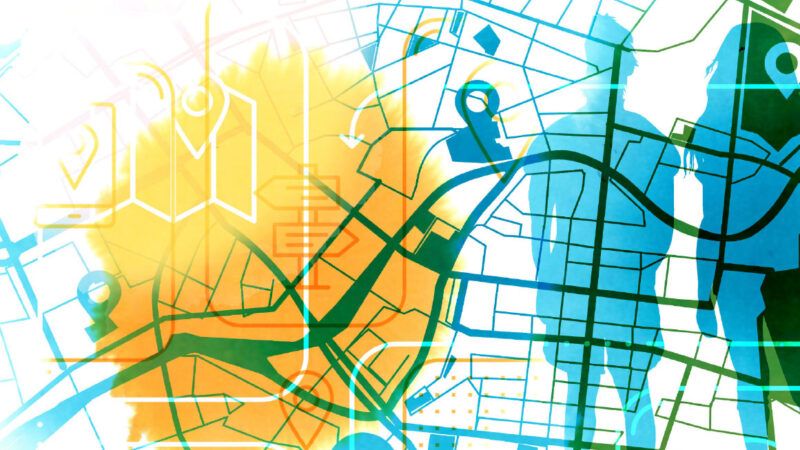Big Mother Is Watching
What does it mean to grow up under constant parental surveillance?

What does it mean to grow up under constant parental surveillance?
Devices like Verizon's GizmoWatch are used to track young kids at an age long before they'd carry a phone. The parents get an alarm if the child ventures beyond the "geofence" they have set, at which point they can call and say, "I see where you are!"
Apps like Life360 do the same thing for older kids with smartphones, "allowing you to make sure they're safe at all times," as an app reviewer explained on YouTube.
If that sounds uncontroversial, even calming, pause for a moment to think about your own childhood. Do you wish your parents had been able to know where you were at all times? Would it have changed your childhood if they had?
About a year ago, The New York Times ran an article on kid trackers and asked kids themselves to respond. More than a thousand did. Many said they were glad their parents were keeping them safe. Others said they didn't mind being tracked, because their parents didn't check on them much. And then there were a lot who said things like this: "[My parents] say it's about my safety but I feel like I have no freedom and that I'm always being watched."
"Really the only difference between an iPhone and an ankle bracelet [monitor] is that one is in your pocket," says Oregon psychiatrist David Rettew, author of Parenting Made Complicated (Oxford University Press). Parents who insist their kids install the tracker are "sending a message that the child sort of needs to have adult electronic eyes on them at all times." Kids may believe the world is so dangerous that they're never safe without a minder, or that they aren't trusted.
The danger message is way off. The odds of a child being kidnapped are so tiny that using an app to prevent abductions is like wearing a helmet to prevent eagle snatchings.
Worse, such apps can undermine a kid's budding sense of independence. "When I was a kid, maybe I sometimes said I was going for a bike ride but went to the variety store to buy a treat instead," says Carli Sussman, a Vancouver mom. Today she lets her 10-year-old ride his bike untracked because "eventually you end up in the adult world and you have to be able to make decisions." You learn to make good ones by sometimes making bad ones.
When someone else is in the driver's seat, all you learn is passivity. But many parents don't see it that way. "For us it's a logistical tool that actually reduces nagging and hovering," a mother of teens wrote to me on Facebook. "If I see by location that they're en route to an activity, I don't need to call or text to remind/confirm."
So she is making sure, from afar, that her kids are doing exactly what they're supposed to be doing. If they aren't, she can and does immediately intervene. That's the opposite of trusting them to do the right thing, or to at least to handle the consequences if they mess up.
The Facebook mom added that "it's rare we've used location surveillance to catch them somewhere they shouldn't be—though they're likely deterred from 'sneaking out' knowing we can see their location." Note that she is not talking about being able to reach her kids. Rather, she is putting them in something like the panopticon, a circular prison with an unseen guard manning a tower at the center, so prisoners can never know when they are not being watched.
One teenager who responded to the Times article managed to wrest free. He had felt betrayed to discover that his mom had put a tracking device on his car. "As a teenager," he wrote, "I have to experience my own freedoms and learn how to keep myself safe." Somehow, he actually convinced his mom of this. She removed the tracker and now, he wrote, "I feel our relationship is stronger because she trusts me to make good decisions and be honest with her. I have more freedom and am responsible."
If we want our kids to embrace freedom and responsibility, it's probably a bad idea to deprive them of both.


Show Comments (17)